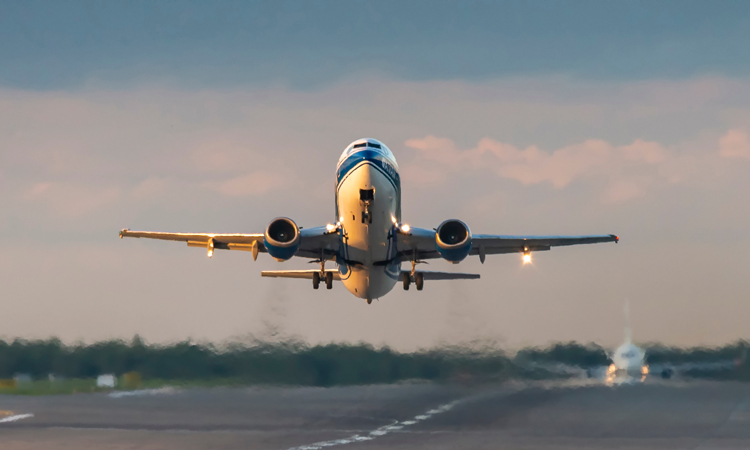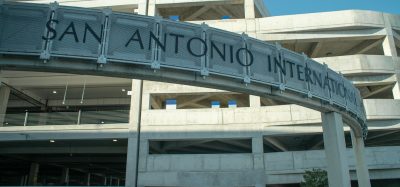ICAO Council adopts new COVID-19 guidelines for aviation recovery
- Like
- Digg
- Del
- Tumblr
- VKontakte
- Buffer
- Love This
- Odnoklassniki
- Meneame
- Blogger
- Amazon
- Yahoo Mail
- Gmail
- AOL
- Newsvine
- HackerNews
- Evernote
- MySpace
- Mail.ru
- Viadeo
- Line
- Comments
- Yummly
- SMS
- Viber
- Telegram
- Subscribe
- Skype
- Facebook Messenger
- Kakao
- LiveJournal
- Yammer
- Edgar
- Fintel
- Mix
- Instapaper
- Copy Link
Posted: 3 June 2020 | International Airport Review | No comments yet
The new ICAO report aims to support the aviation industry in restarting the international air transport system and aligning its global COVID-19 recovery.


The International Civil Aviation Organization (ICAO) Council has announced that it has adopted a new report and recommendations aimed at restarting the international air transport system and aligning its global recovery following the unprecedented impact of the COVID-19 pandemic.
The COVID-19 report and guidelines were produced by the ICAO Council’s Aviation Recovery Task Force (CART). The guidelines were developed through broad-based consultations with countries and regional organisations, and with important advice from the World Health Organization (WHO) and key aviation industry groups – including the International Air Transport Association (IATA), Airports Council International (ACI World), the Civil Air Navigation Services Organisation (CANSO) and the International Coordinating Council of Aerospace Industries Associations (ICCAIA).
Salvatore Sciacchitano, President of the ICAO Council, said: “The world looked to the ICAO Council to provide high-level guidance which governments and industry needed to begin restarting international air transport and recovering from COVID-19. We have answered this call with the delivery of this report, and with its recommendations and ‘Take-Off’ guidelines, which will now align public and private sector actions and mitigations as we get the world flying again, in full accordance with the latest and most prudent medical and traveller health advice available to us.”
CART Chairperson Ambassador, Philippe Bertoux, the Representative of France to the ICAO Council, noted that the CART guidelines were intended to inform, align and progress the national, regional, and industry-specific COVID-19 recovery roadmaps now being implemented, but not to replace them. “These guidelines will facilitate the convergence, mutual recognition and harmonisation of aviation COVID-19 related measures across the globe. They are intended to support the restart and recovery of global air travel in a safe, secure and sustainable way.”
Bertoux continued: “In order to be effective, we need to take a layered and especially a risk-based approach. Measures will be implemented or removed as needed based on the wide ranging medical and other factors which will be at play. Countries and operators need both autonomy and certainty as they take action to get the world flying again, and the CART guidelines are therefore designed to serve in both these capacities as a common reference, while remaining adaptable. This needs to be understood as a type of ‘living guidance’ which will be continuously updated based on latest risk assessments as we monitor progress and reconnect the world.”
The CART’s report contains a detailed situational analysis and key principles supported by a series of recommendations focused around objectives for public health, aviation safety and security and aviation economic recovery. This content is supplemented by the report’s special ‘Take Off’ document, which contains guidelines for public health risk mitigation measures and four separate modules relating to airports, aircraft, crew and air cargo.
Sciacchitano emphasised: “The world needs aviation, and aviation today is in great need of ICAO. Global cooperation through this organisation has helped countries to connect the world to their mutual benefit for over 75 years, and now it’s helping us to reconnect it. Solidarity among all countries and regions and industry sectors will be critical going forward, and ICAO is where we achieve that for global aviation.”
ICAO’s Secretary General, Dr. Fang Liu, also welcomed the CART’s accomplishment and highlighted that ICAO will continue to develop implementation packages to assist member states to restart the operations and recovery: “Restoring public confidence in air travel has very broad benefits. This isn’t only about the operational and economic viability of the air transport sector, but of entire societies and regions having their economic livelihoods and stability restored.”
Industry responses
Airports Council International
ACI World has welcomed the publication of the CART report, highlighting that the guidelines will help to inform worldwide governments and regulators in aligning and progressing the local, national and regional recovery plans that are now being implemented around the world to foster a globally harmonised recovery.
While ACI World believes that there is currently no single measure that could mitigate all the risks of restarting air travel, the harmonisation of any new processes and procedures represents the most effective way of balancing risk mitigation with the need to unlock economies and to enable travel.
Angela Gittens, ACI World’s Director General, said: “We welcome the authoritative ICAO Council Aviation Recovery Task Force Report which will contribute to a globally-consistent, outcome-based approach to the restart and recovery of air travel. Aviation is an interconnected and interdependent global ecosystem and continued global collaboration, cooperation and consistency are key, first for the industry to successfully restart, and then for sustaining a balanced recovery.”
The International Air Transport Association
IATA has urged governments to quickly implement the ICAO Council’s global guidelines for restoring air connectivity, outlining that the report is an authoritative and comprehensive framework of risk-based temporary measures for air transport operations during the COVID-19 crisis.
IATA’s Director General and CEO, Alexandre de Juniac, said: “The universal implementation of global standards has made aviation safe. A similar approach is critical in this crisis so that we can safely restore air connectivity as borders and economies re-open. The Take-Off guidance document was built with the best expertise of government and industry. Airlines strongly support it. Now we are counting on governments to implement the recommendations quickly, because the world wants to travel again and needs airlines to play a key role in the economic recovery. We must do this with global harmonisation and mutual recognition of efforts to earn the confidence of travellers and air transport workers.”
Related topics
Aeronautical revenue, Airport crisis management, COVID-19, Economy
Related organisations
Airports Council International (ACI World), Civil Air Navigation Services Organisation (CANSO), International Air Transport Association (IATA), International Civil Aviation Organization (ICAO), International Coordinating Council of Aerospace Industries Associations (ICCAIA), World Health Organization (WHO)
Related people
Alexandre de Juniac, Angela Gittens, Dr Fang Liu, Philippe Bertoux, Salvatore Sciacchitano

















